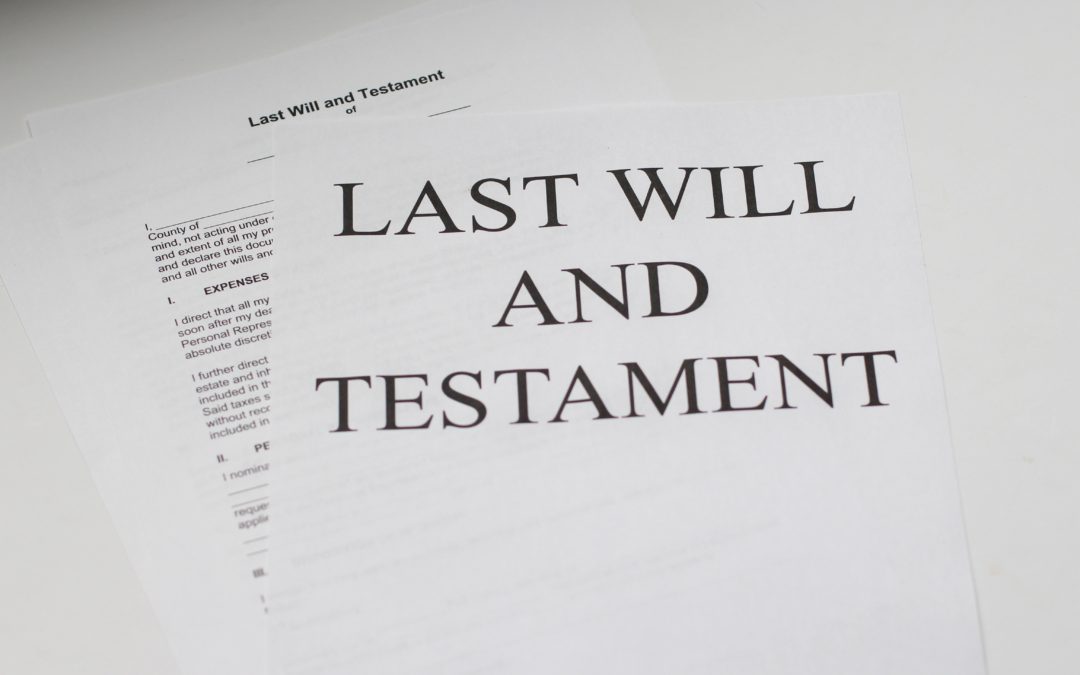Remember the old 90s sitcom “Home Improvement” starring Tim Allen? The TV show dad was ‘star’ of his own tool show and he attempted to fix things around his suburban Detroit house only to end up blowing something up. There was one episode in which he and his wife were drafting up a will, but Tim was reluctant as it reminded him of how his father died a young man. He knew it was the right thing to do but just couldn’t sign the papers – thinking that it sealed his fate.
Human nature is to delay things that bring us displeasure – like creating and signing a will. We are all like Tim in a sense – we want to enjoy the here and now and leave the grunt-work and tiring activities for another day. A will is something that can be crafted and signed in a few hours.
What is a will? A will is a legal document that sets forth the distribution of your assets upon death. It also can be used to appoint guardianship to your minor children. If you pass without a will, you are said to die ‘intestate’, and this is a potential problem because your estate then goes through the probate process. Probate means the court decides where your assets go.
Probate is not a fun experience. First, the government picks and chooses who gets what. Second, it is a long and costly process relative to someone who had a well-planned will. Finally, the disposition of assets is completely public. So you definitely want to avoid this. Even still, in 2017 AARP found that 60% of Americans do not have a will.
In Michigan, if you die without a will, the law dictates that your property goes automatically to your closest relatives beginning with your spouse and children. If you have no relatives (in the court’s opinion), then the government takes your property.
A will has a few key parts. An executor is named – the person that coordinates the will’s provisions. Beneficiaries are named and which assets each will receive. Finally, if you have minor children when the will is made or last updated, guardians are named. Some wills are the size of books while most are no more than a few pages.
If you have retirement accounts (IRAs, 401ks, insurance products), these types of assets can bypass the will so long as you name a beneficiary on the account itself. TFC insists that you go ahead and name a beneficiary on your accounts at all times and be sure to update them as life changes. Also, your checking account can have the “TOD” feature added (Transfer on Death) which is like a beneficiary form.
Moving on – what is a trust? Trusts sound a bit more complex than a will. A trust is used as a tool within the estate planning toolbox and is part of a well-designed will. A trust is a legal document that allows a third party (a trustee) to control a beneficiary’s assets. The goal is to keep estate taxes as low as possible. While few are rich enough to have to pay the ‘death tax’, a trust is more commonly used to avoid the probate process.
There are many types of trusts, and each has a specific purpose. That’s what can make the arena so confusing. You can quickly get lost in the legalese, but just know TFC is the expert on this process. We are here to ensure you have the proper estate planning documents and accounts crafted to make the distribution of assets process go as smoothly as possible.
Two common types of trusts are called revocable and irrevocable. Revocable trusts are drawn up by the individual who wants to keep control of his or her assets while living. The downside is there is potential estate tax liability upon death for keeping control during one’s lifetime. It’s a tradeoff. On the other hand, an irrevocable trust cannot be revoked or changed after it is signed – these are often used to reduce estate tax liability, but it requires the individual to yield control of the assets within the trust.
Here’s the point
- A will and trust are key pieces of the broader estate planning process. Everyone should have a will, and a trust is useful in many circumstances.
- It is human nature to delay things like creating a will, but it is actually a fairly straight-forward process
- TFC is an expert on proper estate planning. Let us help you ensure this key piece of your financial plan is in place & optimized to avoid legal headaches later.
Action items
- Make your will. If you already have one, update it. Life changes, and how you want your assets distributed will shift over time.
- Name your beneficiaries and ensure your checking accounts have a Transfer on Death feature
- Sit down with TFC to ensure your estate plan is still on the right track
***************
This was Blog Post # 4 in our Estate Planning Series. Make sure you circle back to check out all the posts in this series if you have not yet had the chance to read them!
Estate Planning Series Post #1: What is Estate Planning?
Estate Planning Series Post #2: Establishing an Estate Plan: What is the process?
Estate Planning Series Post # 3: What Age Should You Start to Consider Estate Planning?
Featured Image: Photo by Melinda Gimpel on Unsplash


